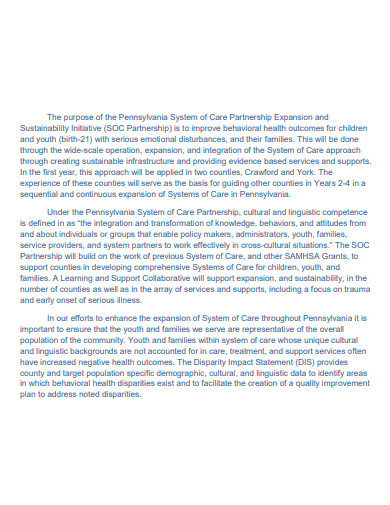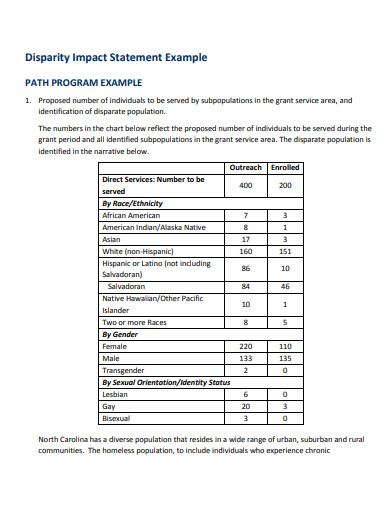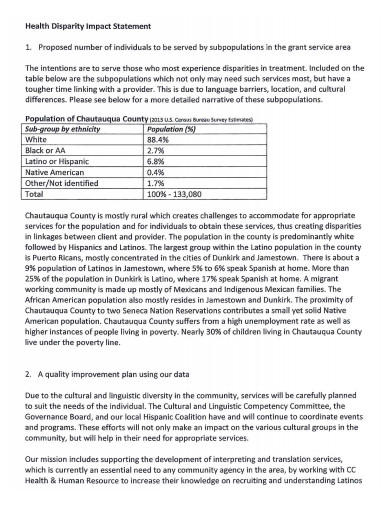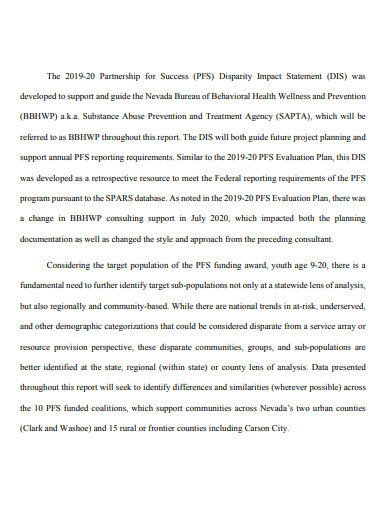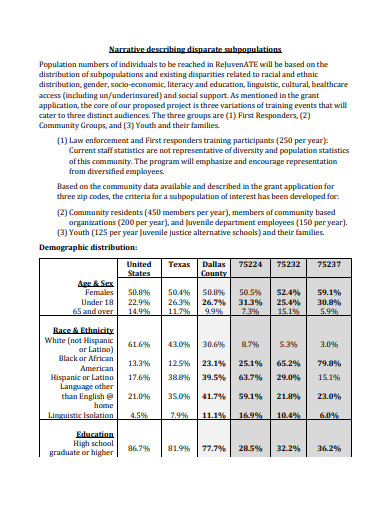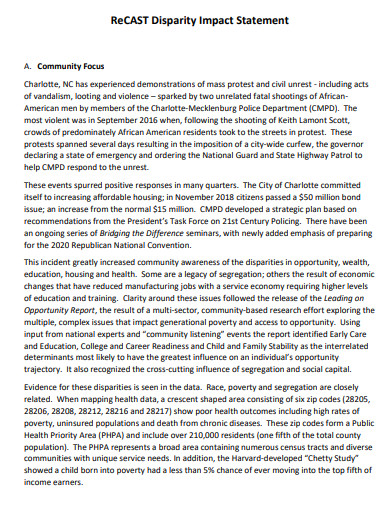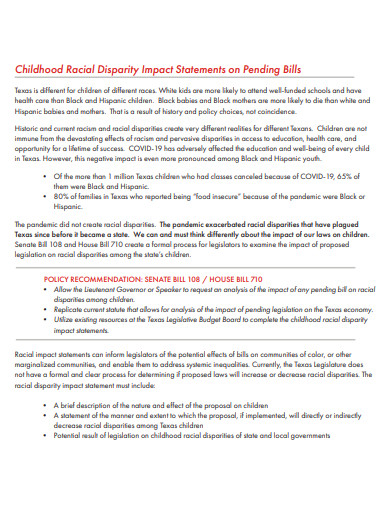6+ Disparity Impact Statement Examples to Download
There are known well-documented disparities across many systems. This systems are referred to criminal justice and behavioral health. Some are outcomes among various ethnical groups, cultures, gender, and even sexual orientation. It is important to clearly understand the tradition and background among all these groups so that you can be able to foresee different strategies that can be delivered effectively.
Being diverse at an early time provides opportunities to reduce disparities such as in criminal justice as individuals tend to avoid having criminal charges against them. They will be faced with consequences they know they would not want. This also provides benefits to the behavioral system as it will link every individuals to care when they have poor services and access to health treatment.
Due to factors that may lead to exclusion of other groups, it is best to plan ahead on how this certain program will be noticed more especially the one that addresses disparity issues.
6+ Disparity Impact Statement Examples
1. Disparity Impact Statement Template
2. Disparity Impact Statement Example
3. Health Disparity Impact Statement
4. Printable Disparity Impact Statement
5. Disparity Impact Statement in PDF
6. Formal Disparity Impact Statement
7. Basic Disparity Impact Statement
What is a Disparity Impact Statement?
A disparity impact statement is designed to inform about the different services given to and received by the different groups in the world that are underserved. This type of statement shows the inequalities of the services that have existed and the plans that ensures that all groups who experience disparity will receive the same level of treatment and access. This includes quality health care, safety protection and more.
Steps in Developing a Disparity Impact Statement
Clarify the number of population
– you may consider creating a table that shows the data on how many people are in each of the population per group. Organize them by the use of demographics and geographical area. You should indicate the total exact number of the people to be served. Take into account all the disparities taken. Aside from the table, put a narrative statement the describes and explains the services intended in each population. Describe the characteristics that may possibly give a huge impact to the different groups.
Develop a Quality Plan
– you should be able to provide an outline of your plan that shows how you addressed the disparities. The plan should indicate steps or procedures. You should be indicating equitable access which includes transportation, language, geographic access, quality treatment, health literacy, cultural preferences, and more.
Do not also forget to check for adherence in your plan. Monitor the progress if possible. In the aspect of behavioral health, the quality improvement serves as a systematic process that improves ways on how services should be delivered. All the data gathered should be analyzed to be able to fully understood to produce good outcomes.
Adhere to Cultural and Linguistic Services
– this will let you think of ways on how are you going to adhere into the cultural and linguistic services standards. It should always center into the value of responsiveness to the diversity of every culture and other needs such as in the government, workforce, leadership and more.
When you adapt to this standards, you can be able to help in reducing the disparity issues across different groups. Always have the time to plan for quality improvement plans that enables implementing standards that should be met by the providers.
FAQs
How are the proposed number of individuals be served?
The proposed number of individuals should be served by subpopulations and identification of each of the disparate population.
What does CLAS stands for?
CLAS stands for Culturally and Linguistically Appropriate Services.
When you adhere to CLAS, what type of attention you should be giving?
You have to give attention to the diverse cultural beliefs, the preferred languages and health literacy and other communication needs.
It is always deemed important to perform or give a disparity impact statement. Its main purpose is to offer help for those group of people that are underserved. They have not received equal access according to what their individual or group needs will be. To enable to write a good one, always supply data that are truthful and specific.



